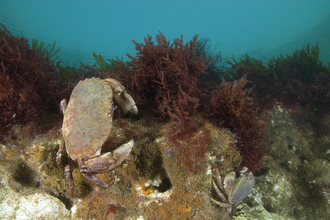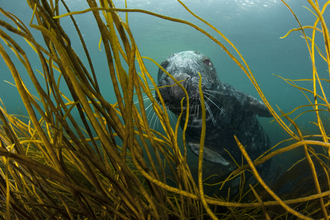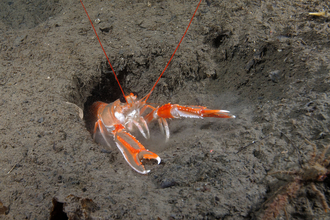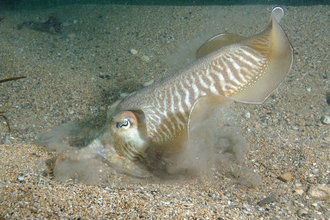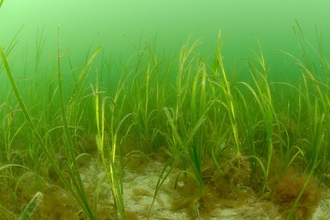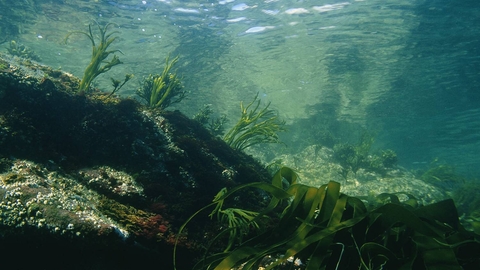
©Paul Naylor
Marine
Not just water
The sea can seem like just a huge expanse of water – vast, deep and maybe a little scary. But a huge variety of habitats can be found here. Close to shore, rocky reefs create rockpools that teem with anemones and starfish, while further out to sea, deep-water corals provide nursery sites for many of our commercial fishes such as cod.
Kelp forests support numerous species from tiny plankton to large fish, and living reefs (made entirely of organisms like mussels or tubeworms) provide food and shelter for marine wildlife. In the shallows, seahorses and bass hide among underwater meadows of seagrass.
Deep-sea mud plains may look barren and lifeless, but they are home to all kinds of sea life like bristleworms, spider crabs and lobsters. Shallow mudflats are a feeding ground for waterbirds at low tide, and sand and gravel beds are important for crustaceans like shrimps, and for spawning fish, which burrow into the seabed for protection.
Seas are under threat
As a result of its richness, our marine environment is under threat. Overexploitation of fish stocks is causing the decline of many once-familiar species. Pollution from sewage discharge, oil spills and nutrient run-off is extremely toxic to sea life, while physical disturbance from dredging, mobile fishing gear, boat anchoring and coastal development are also taking their toll on marine habitats.

